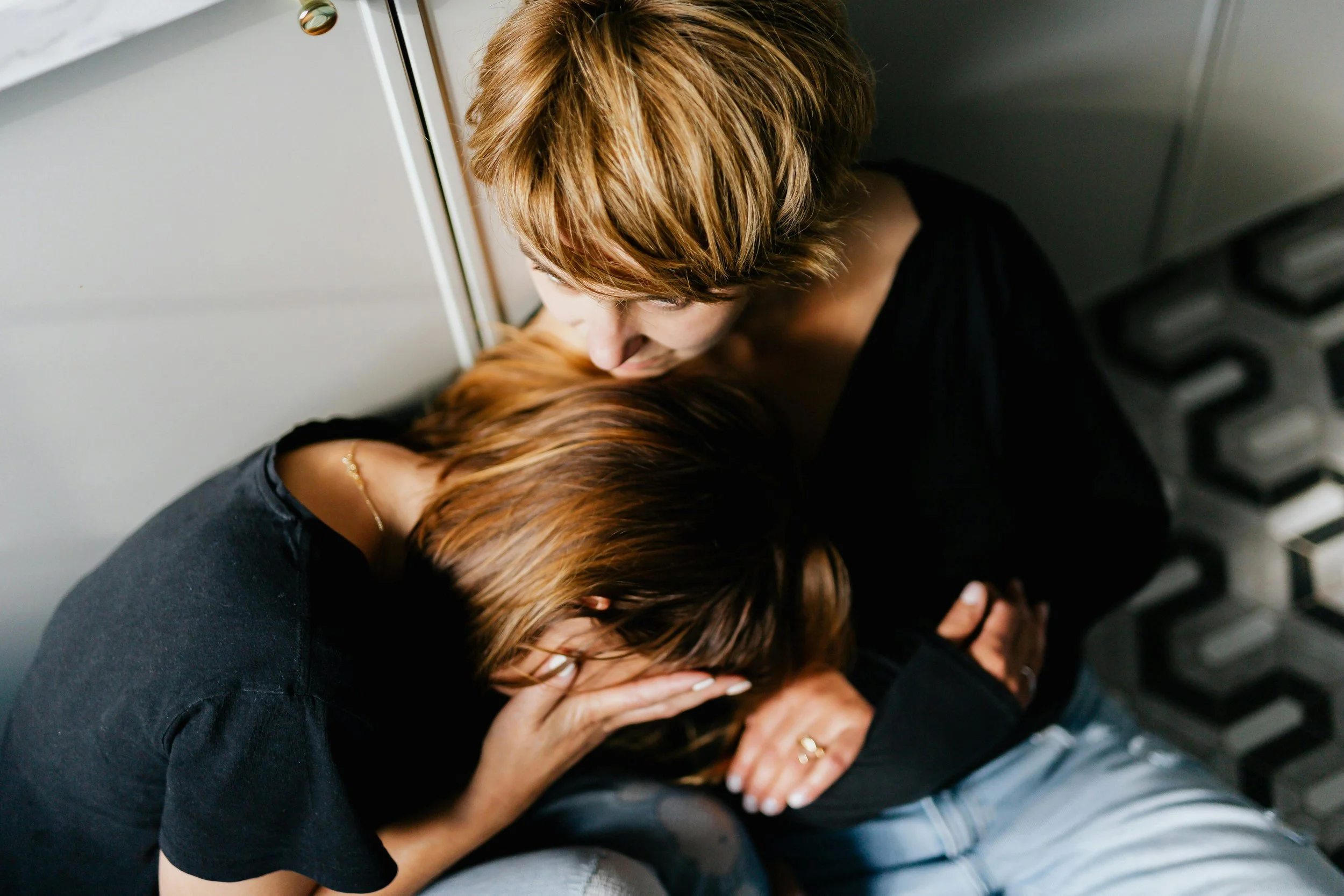Traumatic Grief - Supporting a Community Tragedy
Following the synagogue attack in Manchester, we offer our heartfelt sympathies to the families involved and the Jewish community and hope that the following will be of help.
Author: Pete English
Overview: When a tragedy strikes a community, the emotional impact is far-reaching and causes traumatic grief. Find our practical tips for how communities can come together in the face of shared sorrow.
Supporting a Community Tragedy
When a tragedy strikes a community, the emotional impact is far-reaching. Grief rarely affects just the immediate family; it ripples outward to touch friends, classmates, teachers, emergency workers, neighbours, and beyond.
Many may wonder: How do we help? What can we do that can support those who are grieving?
While no response can undo the pain of such loss, a compassionate and coordinated effort can bring comfort, promote healing, and remind those most deeply affected that they are not alone.
Below are practical tips for how communities can come together in the face of shared sorrow.
Create Safe, Welcoming Spaces to Recover from Traumatic Grief
In the immediate days following a tragic event, people often feel shocked, disoriented, and emotionally overwhelmed. Having a physical space to go - a community hall, a place of worship, a school room, even a local café, can provide much-needed refuge.
What may help:
Opening community spaces for quiet reflection, shared silence, or informal conversations.
Offering tea and a listening ear rather than structured activities.
Making it known that people are welcome to simply “be,” without needing to explain how they feel.
The presence of others, even in silence, can help individuals feel less isolated in their grief.
Involving Faith and Cultural Communities
Faith leaders and cultural representatives are often at the heart of communal care in times of loss. They can provide spiritual comfort, cultural understanding, and practical assistance.
What may help:
Hosting services or interfaith gatherings where people of all beliefs can come together in remembrance.
Coordinating volunteer efforts to prepare meals, help with transport, or support grieving families.
Offering one-to-one pastoral care or prayer for those who seek it.
People often turn to their spiritual or cultural roots during times of pain. Providing space for that can be deeply healing.
Supporting Children and Young People Through the Grieving Process
Children process grief differently from adults and often benefit from creative or age-appropriate ways to express their feelings. It’s important to recognise their loss, even if they aren’t directly related to the person who has died.
What may help:
Creating opportunities for children to draw, write, paint, or plant something in memory to help them to process their traumatic grief.
Making space in schools or youth groups for children to talk about what happened, with gentle guidance.
Providing consistency and routine, which can be reassuring in the midst of uncertainty.
Even small gestures like writing a message, lighting a candle, or making a card, can give young people a sense of connection and a way to honour their feelings.
Memorials That Offer Comfort and Purpose
Public memorials can be a way for the wider community to acknowledge the depth of the loss and to show solidarity with those who have been bereaved. The key is to approach them with sensitivity and in consultation with those most affected.
What may help:
Holding candlelit vigils, silent walks, or moments of reflection.
Planting a memorial tree or dedicating a bench or artwork.
Creating lasting tributes, such as community gardens, scholarships, or charitable initiatives.
These acts can help create meaning out of grief and provide a focal point for remembrance in the years to come.
Don’t Overlook the Needs of First Responders and Witnesses
Emergency services, drivers and passers by may carry their own emotional burdens after witnessing or responding to a tragedy. Their experiences matter too and can have long-lasting effects if not acknowledged.
What may help:
Offering peer support circles or confidential counselling for those involved.
Giving staff and responders time off if needed and checking in with them regularly.
Showing appreciation through kind words, thank-you notes, or gestures of public gratitude.
Letting these individuals know they are not forgotten can make a significant difference to their ongoing wellbeing.
Avoid Making Assumptions About Traumatic Grief
It’s important to remember that grief is a deeply personal experience. Some may wish to be surrounded by others; some may need solitude. Others may find comfort in religious rituals, while some may not.
What may help:
Offering support without pressure or expectation.
Allowing each person to grieve in their own time and way.
Avoiding phrases like “I know how you feel,” and instead simply saying, “I’m here if you need me.”
Kindness, presence, and patience go a long way.
The Importance of Continuing Support
In the early days after a loss, support often comes readily. But grief continues long after headlines fade. Birthdays, anniversaries, and seasonal events can reawaken pain.
What may help:
Checking in on bereaved families and individuals in the weeks and months that follow.
Remembering anniversaries or significant dates with a card, call, or quiet message.
Continuing to offer practical support like meals, childcare help, or errands - even after some time has passed.
Ongoing, gentle care reminds people that they are not forgotten and that their pain matters.
Closing Comments
When a community experiences a tragedy, it is natural to feel helpless. But even in the face of great sorrow, small, compassionate actions, when done collectively, can begin to mend the fabric of a grieving community.
A community facing tragedy needs people who listen, people who remember, and people who show up - with empathy, patience, and presence.
If you or someone you know is grieving in the aftermath of a tragedy, Ataloss.org directs to bereavement support services across the UK. You’ll also find a growing library of resources to help process grief, whatever the circumstances and whoever has died.
For specific help for the Jewish community please use the main website search.
Latest Articles



